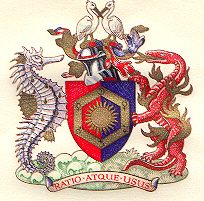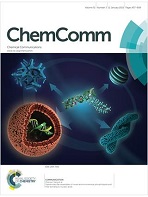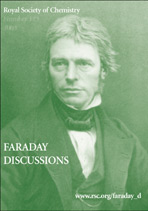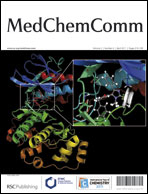
The Royal Society of Chemistry (RSC) is a learned society in the United Kingdom with the goal of "advancing the chemical sciences". It was formed in 1980 from the amalgamation of the Chemical Society, the Royal Institute of Chemistry, the Faraday Society, and the Society for Analytical Chemistry with a new Royal Charter and the dual role of learned society and professional body. At its inception, the Society had a combined membership of 34,000 in the UK and a further 8,000 abroad. The headquarters of the Society are at Burlington House, Piccadilly, London. It also has offices in Thomas Graham House in Cambridge where RSC Publishing is based. The Society has offices in the United States at the University City Science Center, Philadelphia, in both Beijing and Shanghai, China and Bangalore, India.

The Royal Institute of Chemistry was a British scientific organisation.
The Chemical Society was a scientific society formed in 1841 by 77 scientists as a result of increased interest in scientific matters. Chemist Robert Warington was the driving force behind its creation.

ChemComm, formerly known as Journal of the Chemical Society D: Chemical Communications (1969–1971), Journal of the Chemical Society, Chemical Communications (1972–1995), is a peer-reviewed scientific journal published by the Royal Society of Chemistry. It covers all aspects of chemistry. In January 2012, the journal moved to publishing 100 issues per year. The current chair of the Editorial Board is Douglas Stephan, while the executive editor is Richard Kelly.
Chartered Chemist (CChem) is a chartered status awarded by the Royal Society of Chemistry (RSC) in the United Kingdom, the Royal Australian Chemical Institute (RACI) in Australia, by the Ministry of Education in Italy, the Institute of Chemistry Ceylon (IChemC), Sri Lanka, and the Institute of Chartered Chemists of Nigeria in Nigeria.
The Journal of the Chemical Society was a scientific journal established by the Chemical Society in 1849 as the Quarterly Journal of the Chemical Society. The first editor was Edmund Ronalds. The journal underwent several renamings, splits, and mergers throughout its history. In 1980, the Chemical Society merged with several other organizations into the Royal Society of Chemistry. The journal's continuity is found in Chemical Communications, Dalton Transactions, Faraday Transactions, and Perkin Transactions, all of which are published by the Royal Society of Chemistry.

Faraday Discussions is a scientific journal publishing original research papers presented at a long-running series of conferences on physical chemistry, chemical physics and biophysical chemistry which are also called Faraday Discussions, together with a record of the comments made at the meeting. The journal was originally published by the Faraday Society. The journal has been published by the Royal Society of Chemistry (RSC) since that society merged into the RSC. From 1972 to 1991, it was known as the Faraday Discussions of the Chemical Society. Traditionally there have been three Faraday Discussions a year, however, from 2014 around eight conferences are organised annually.

Dalton Transactions is a peer-reviewed scientific journal publishing original (primary) research and review articles on all aspects of the chemistry of inorganic, bioinorganic, and organometallic compounds. It is published weekly by the Royal Society of Chemistry. The journal was named after the English chemist, John Dalton, best known for his work on modern atomic theory. Authors can elect to have accepted articles published as open access. The editor is Andrew Shore. Dalton Transactions was named a "rising star" by In-cites from Thomson Scientific in 2006.

The New Journal of Chemistry is a monthly peer-reviewed scientific journal publishing research and review articles on all aspects of chemistry. It is published by the Royal Society of Chemistry (RSC) on behalf of the French National Centre for Scientific Research (CNRS). It was established as Nouveau Journal de Chimie in 1977, acquiring its current title in 1999. The editors-in-chief are Denise Parent (CNRS) and Sarah Ruthven (RSC). According to the Journal Citation Reports, the journal has a 2019 impact factor of 3.288.

Lab on a Chip is a peer-reviewed scientific journal which publishes original (primary) research and review articles on any aspect of miniaturisation at the micro and nano scale. Lab on a Chip is published twice monthly by the Royal Society of Chemistry (RSC) and the editor-in-chief is Abraham Lee. The journal was established in 2001 and hosts other RSC publications: Highlights in Chemical Technology and Highlights in Chemical Biology. According to the Journal Citation Reports, the journal has a 2016 impact factor of 6.

ChemSpider is a database of chemicals. ChemSpider is owned by the Royal Society of Chemistry.

MedChemComm is a peer-reviewed scientific journal publishing original (primary) research and review articles on all aspects of medicinal chemistry, including drug discovery, pharmacology and pharmaceutical chemistry. Until December 2019, it was published monthly by the Royal Society of Chemistry in partnership with the European Federation for Medicinal Chemistry, of which it was the official journal. Authors can elect to have accepted articles published as open access. According to the Journal Citation Reports, the journal has a 2014 impact factor of 2.495, ranking it 27th out of 59 journals in the category "Chemistry, Medicinal" and 163 out of 289 journals in the category "Biochemistry & Molecular Biology".
RSC Advances is an online-only peer-reviewed scientific journal covering research on all aspects of the chemical sciences. It was established in 2011 and is published by the Royal Society of Chemistry. The editor-in-chief is Russell J. Cox.

Saiful Islam is a British chemist and professor of materials chemistry at the University of Bath. His research uses advanced computer modelling techniques to gain atomic-scale insights into new materials for clean energy applications including lithium-ion batteries, solid-state batteries and perovskite solar cells. He was a 2013 recipient of the Royal Society Wolfson Research Merit Award.
Stephen Mann, FRS, FRSC, is Professor of Chemistry, co-director of the Max Planck Bristol Centre for Minimal Biology, director of the Centre for Organized Matter Chemistry, director of the Centre for Protolife Research, and was principal of the Bristol Centre for Functional Nanomaterials at the University of Bristol, UK.
The Longstaff Prize is given to a member of the Royal Society of Chemistry who has done the most to advance the science of chemistry. First awarded in 1881, it was originally conferred by the Chemical Society and known as the Longstaff Medal.









